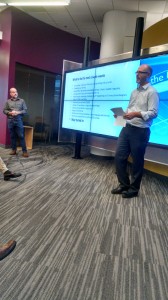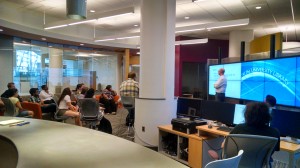This week was the start of school. But that’s not as important as the fact that it’s also Dragon Con week. What this means is that I will need to be front-loading all my work into the first few days of the week, save some meetings coming Thursday because my friend, author, and fellow blogger, Giando Sigurani will be coming in to join in the festivities with me.
What does that mean for my SIF work? It means that I’ve been researching far and wide the different styles and platforms for wiki’s out there.
In case you haven’t read this helpful over-view article, here is an handy “How to Start Your Own Wiki” article with some great starter links in it. I’ve explored several wikis with some pretty attractive design elements (never minding the content): Wet Paint is a celebrity gossip page, and my favorite video game, Don’t Starve, even has its own wiki page for users to try and figure out how to build and create things the characters need in the game.
The great thing about wikis is that they don’t have to all look like wikipedia. They can be designed to look like a regular web page, but they still are made up largely user content. The idea behind all this research is to create an attractive and intuitive wiki where students can post pages about tools they can use in class, on projects, or just to make life easier.
I will be posting relatively regularly about the tools wiki as it develops, so please check back often for news, successes and failures on this project.

